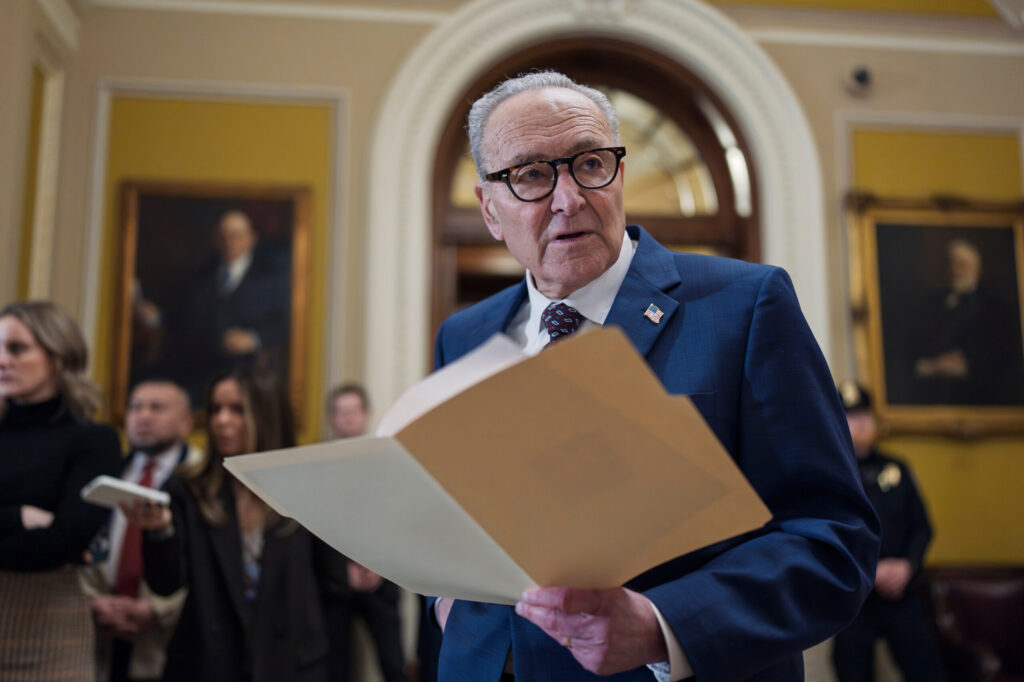YESTERYEAR: World leaders descend on Denver for G-7; health care forum exposes tragedies
Twenty Years Ago This Week in The Colorado Statesman: Little old Colorado was plunged into the deep end of international politics when Denver hosted eight world leaders from the Group of Seven. Denver rolled out the carpet for national leaders from the USA, Canada, France, Germany, Japan, Italy, Russia and the United Kingdom, and on the agenda for discussion were a host of heavy-weight issues including development assistance for Africa and Asia, Russia’s economic difficulties and how best to eliminate the bribery of public officials by corporations doing business in the international market. Other agenda items included the effect of pollution on children’s health and how best to stop terrorist attacks on ground transportation systems.
According to many of the pundits, the G-7 Summit provided Colorado’s business community with a once-in-a-lifetime opportunity to gain short-term economic benefits and, moreover, the chance to make long-term inroads into world markets.
Event co-hosts included Lt. Gov. Gail Schoettler, Colorado National Bank CEO Daniel Yohannes and Adolph Coors Company Chairman William Coors.
“Businesses need to look at the Summit from two perspectives,” Yohannes said. “In the short term, there will be 10,000 to 20,000 people … all spending money in the state; about $15-$20 million total. In the long term, as Denver and Colorado position themselves as major economic actors, this event will provide a lot of visibility to the companies here.”
Jim Nicholson, chairman of the Republican National Committee, took the opportunity to extoll the virtues of Republican tax cuts. Citing the defeat of President Bill Clinton’s government-run health care plan to reform welfare, Nicholson said Republicans had charted a course for smarter, smaller government where unemployment was at a 24-year low of 4.8 percent and inflation was in check.
“In contrast, France, Germany, and Italy suffer from chronic double digit inflation and job production is weak. In Japan, economic growth is lethargic,” Nicholson wrote.
In 2016, Japan, Switzerland and France had the top three lowest inflation rates within the G-20 and Germany’s inflation rate was almost a full half percent lower than the United States.
Ten Years Ago: The Colorado Progressive Coalition, along with House Speaker Andrew Romanoff, D-Denver, hosted a forum at Windsor Gardens Centerpoint Community Center in East Denver where members of the community were able to voice their concerns about the many vexing dilemmas facing health care in Colorado.
The forum was cut short by organizers, but it still lasted two hours – overextending its scheduling due to droves of people coming forward to share their own health care system horror stories from the floor. Eventgoers did indeed express many deeply personal accounts at the gathering. One involved a woman who was coughing up blood on a hospital floor and died because no one came to her assistance. Local writer, Kristen Hannum, shared another tale of medicinal incompetence that resulted in the death of her husband. His appendicitis was misdiagnosed and he was sent home with only a bottle of antibiotics. Hannum shared that her husband hadn’t wanted to go to the hospital earlier because they didn’t have health insurance.
“If we had been French, Belgian, English, Swedish, if we had been citizens of any other industrialized nation, he would have gone earlier.” Hannum had just given birth to the couple’s child before her husband’s death.
Romanoff pounced at the opportunity given off by the vibe at the event, one that had demonstrated the apparent, dilapidated condition of Colorado’s health care system.
“Our system is broken. By international standards, nobody can argue with a straight face that our nation has achieved the best health outcomes for the lowest cost. You can see it every day in Colorado,” Romanoff told the crowd.
Romanoff also promised that health care would be the “top priority” of the 2008 legislative session and was very optimistic that the Blue Ribbon Commission’s five health care project proposals would result in solid reforms for the state.
The Blue Ribbon Commission was comprised of political appointments from both parties, including, Romanoff, Senate President Joan Fitz-Gerald, Gov. Bill Ritter, former Gov. Bill Owens, Senate Minority Leader Andy McElhany, and House Minority Leader Mike May.
Grant Jones, the executive director of the Center for African-American Health, and one of its commissioners, also attended and said, “It is really important to the commission to hear the voice of the people of Colorado.”
When Romanoff was asked how Democrats intended to reframe the health care debate in response to the common conservative belief that the free market will cure the ills of the industry, Romanoff began with saying, “What we ought to do is de-politicize the issue.”
He then called for a policy “based on mathematics,” and commented that ideology rather than evidence had driven a lot of the debate.
Jones agreed, adding, “The commission has expressed a sense of value in a way that is about our consensus, not about our politics.”
After the plethora of devastating stories told and the forum had concluded, Romanoff tied it off, saying, “It was useful in the sense that if anyone were in doubt at the beginning about whether there’s a problem, there can be no doubt.”











